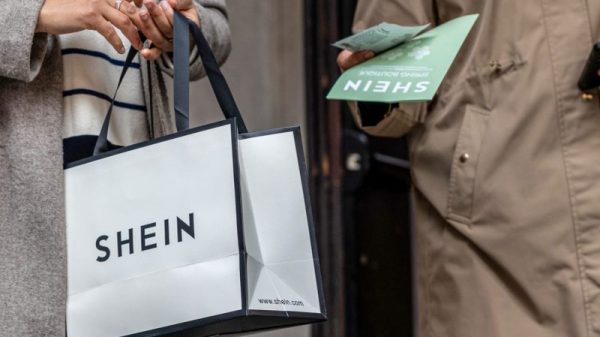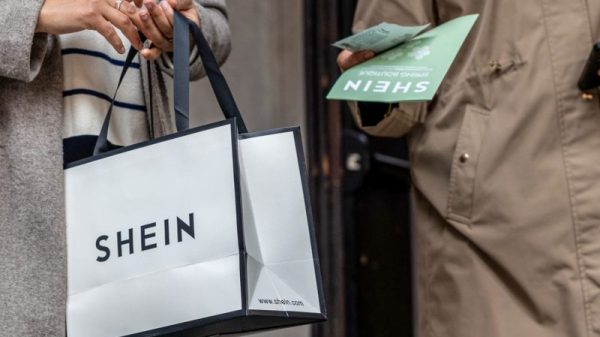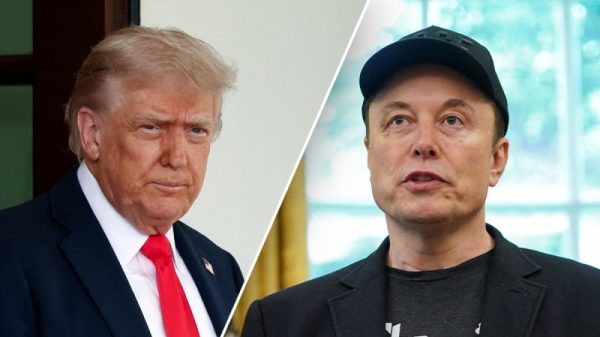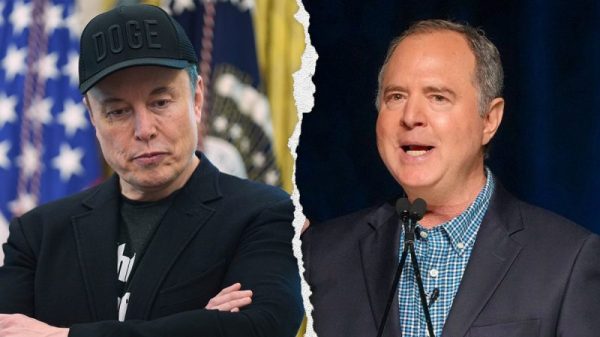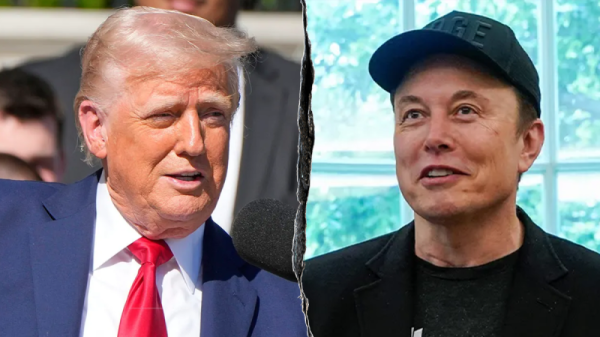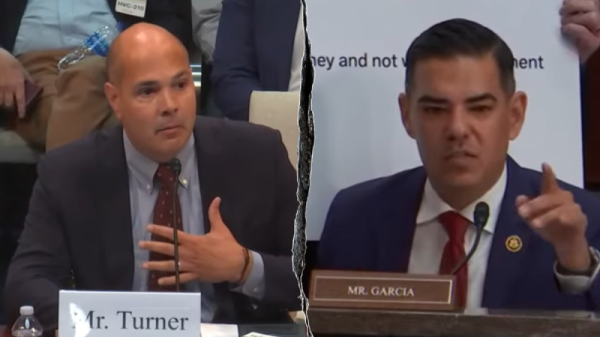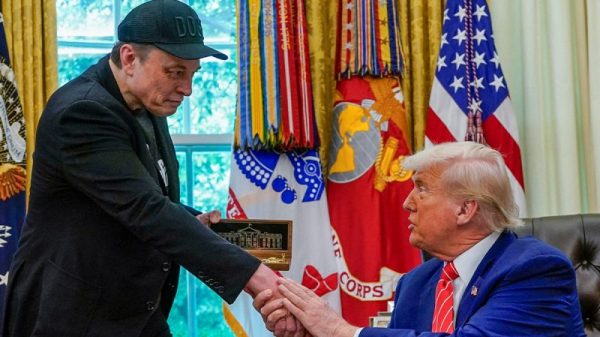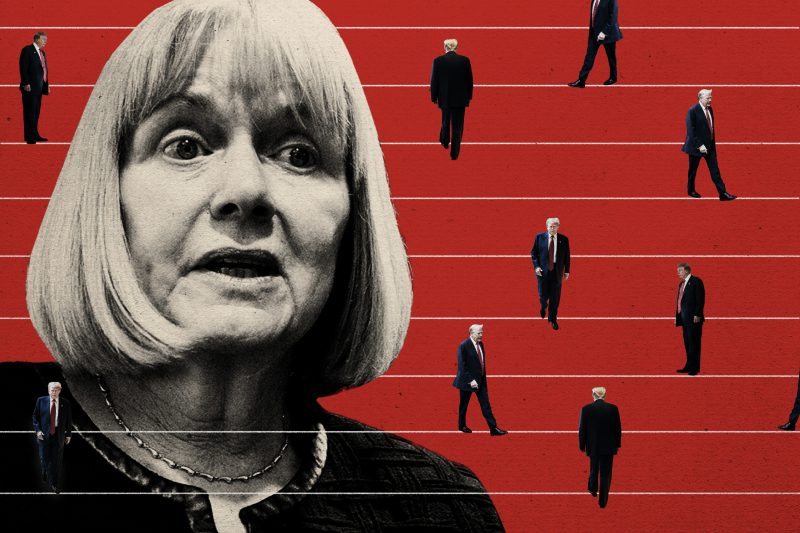Barbara S. Jones took on plenty of high-profile cases as a prosecutor and then as a federal judge, but now she finds herself in what is, even for her, an extraordinary position: Appointed by a New York court, she is responsible for scrubbing the finances of the business empire belonging to Donald Trump, the once and maybe future president.
The February civil court ruling that Trump was liable for business fraud has largely receded from headlines as the presidential race enters its final stage. But he faces continued scrutiny from Jones, a seasoned former judge whom the court has granted X-ray vision into the finances of Trump’s business for the next three years, through the November election and possibly into a second Trump term.
During her 50-year career, Jones, who was appointed to the federal bench by President Bill Clinton (D), has assiduously avoided sharing political views that could tarnish her standing as someone able to serve as a steadfast arbiter of high-profile disputes. Friends and former clerks call her fearless. But she is the first court-appointed monitor to be tasked with keeping tabs on the finances of a former president, in this case one who has a history of lashing out on social media at those who challenge him.
“She’ll do things right,” said Joe Pistone, who worked with Jones in the 1980s when she was a federal prosecutor going after the mob and he was an undercover FBI agent — working under the alias “Donnie Brasco” — testifying in her cases. “She’s not going to be swayed by politics on what she’s doing.”
Jones’s oversight role stems from a lawsuit that New York Attorney General Letitia James (D) filed against Trump, his two eldest sons and their family business in 2022, accusing them of distributing fraudulent financial information to banks and insurers to get better rates. Prior to the trial, Arthur Engoron, the judge in the case, decided to appoint an independent monitor in November 2022 “to ensure there is no further fraud or illegality.”
Trump and James both proposed Jones to serve in the role, a signal of her reputation for evenhandedness. As a prosecutor, Jones won convictions against some of the country’s most notorious mafia bosses. Later, as a federal judge, she sentenced terrorists, extortionists and a famously corrupt CEO to prison. She has since been hired by a long list of powerful institutions — including the Pentagon, the NFL and Fox News — to help them police their own conduct in the wake of scandal.
Engoron found Trump and his business liable for fraud and in February ordered them to pay more than $450 million in penalties and interest. What drew less attention at the time was Engoron’s simultaneous decision that Jones should continue in her role “to keep defendants honest.”
Trump appealed Engoron’s decision, including the penalties and the extension of the monitorship by Jones. A New York state appeals court is scheduled to hear oral arguments in the case on Thursday.
Meanwhile, Jones, 76, is empowered to review bank statements, scour accounting methods, and examine significant wire transfers, sales, purchases or loans before they occur. She is obligated to report to the court any deficiencies, false statements or material misrepresentations she finds.
She did just that in January, as Trump was trouncing his Republican presidential primary opponents. In a 12-page report, she told the judge that a mysterious debt long claimed by Trump had never actually existed and that the Trump Organization had loaned Trump money that it improperly failed to disclose.
Her report did not go over well at the Trump Organization, which hasn’t previously been subject to such policing of its internal operations. The company’s lawyers fired off their own letter to the court comparing her to the obsessive Inspector Javert from “Les Misérables” and demanding her removal. They accused her of intentionally running up an enormous bill cataloguing minor accounting matters. The company must pay for her team’s work on the case, a tab that ran to $2.6 million over the first 14 months.
Engoron noted that Trump’s attorneys had “changed their tune” about Jones. “Overnight, a universally respected former judge with a stellar resume, nominated by defendants themselves, joined the ranks of all those people and institutions being unfair to defendants and out to get them,” the judge wrote.
Trump’s team maintains that Jones’s role is unnecessary but says the company is complying.
“While we strongly disagree with Judge Engoron’s decision to continue the monitorship, and plan to raise that issue on appeal, we continue to work cooperatively and in good faith with Judge Jones,” Alan Garten, the Trump Organization’s general counsel, said in an interview.
Jones and a spokesman for her firm, Bracewell, declined to comment for this report. In a July letter to the court, Jones said the Trump Organization was cooperating with her, and they were working together to add new financial controls.
Longtime Jones friend Sara Moss said her adult children — who have known Jones their entire lives — were concerned for Jones when they heard she was taking the Trump case.
“When the news came out, they were asking: ‘Why would she do this? Is she going to get harassed?’” said Moss.
Moss wasn’t worried. “I don’t think it will really matter what Trump throws at her,” she said. “She just takes that noise and doesn’t let it affect her.”
‘She had no fear’
Jones joined the Justice Department out of law school in 1973. Four years later, she joined the U.S. attorney’s office in the Southern District of New York as part of a wave of female hires that also included Moss and Mary Jo White, who later became the first woman to head the office. The three played on a basketball team together called the Feds, and their tough demeanor in and out of the courthouse garnered them the nickname “the Sids” after punk rocker Sid Vicious.
When Jones was part of a team of prosecutors taking on the mob, she worked with future FBI director Louis J. Freeh and led a “strike force” of 15 attorneys and more than 70 agents from multiple agencies.
In 1982, as Jones prepared for a key mob trial, the government’s star witness — Pistone — came to her in a state of distress.
After more than five years undercover, Pistone was getting ready to testify against some of the mafia’s most notorious leaders, he recalled in a recent interview. But a $500,000 bounty had been offered to kill him, and Pistone feared for his family.
Jones steeled his nerves through hours of preparation for cross-examination, he said. During the six-week trial, she deftly anticipated the mafia’s next moves. Ultimately, she and her team won multiple convictions.
“She had no fear,” said Pistone, who still lives under an assumed name 42 years later. “We were going against every one of those mob attorneys, and she never backed down.”
In 1984, Rudy Giuliani, then the Southern District’s U.S. attorney, promoted Jones to chief of the organized-crime unit. “She gets everyone’s respect,” he said, announcing the move.
Jones focused on street crime in that role and in her next one, working for Manhattan District Attorney Robert Morgenthau. In 1995, Clinton nominated Jones to be a federal trial-court judge in the Southern District. She had registered as a Democrat a month after Clinton’s victory in 1992, records show, and came recommended by the state’s Democratic senator, Daniel Patrick Moynihan. New York’s Republican senator, Alfonse D’Amato, wrote a letter of support.
Public service to private practice
In her 17 years as a judge, Jones handled cases involving the attempted extortion of Bill Cosby and an $11 billion accounting fraud committed by Bernie Ebbers, the founder and former CEO of telecommunications giant WorldCom. Jones sentenced Ebbers to 25 years in prison.
In 2012, she struck down a portion of the Defense of Marriage Act, a federal law signed by Clinton that prevented married same-sex couples from receiving certain benefits. She ruled that Edith Windsor should be allowed to inherit her deceased wife’s estate just as a husband would. In Jones’s opinion, the law unconstitutionally discriminated against same-sex couples. The Supreme Court later agreed by a 5-4 vote.
When she stepped down the following year, at age 65, she was financially supporting members of her family, friends say. In the final financial disclosure form she filed as a judge, she listed almost no assets beyond a retirement account worth less than $15,000. She listed six credit cards, two of them with balances of more than $15,000.
Leaving the federal bench for private practice — first at Zuckerman Spaeder and now at Bracewell — allowed her to make private-sector money while still serving as an independent arbiter in thorny and often high-profile cases.
A long line of entities looking to restore public trust have hired her to help address their own workplace misconduct, among them the Defense Department, the New York Philharmonic, the New York Archdiocese and the University of Michigan.
When Baltimore Ravens star running back Ray Rice punched his fiancée unconscious in Atlantic City in 2014, NFL Commissioner Roger Goodell suspended Rice for only two games. Then video of the incident came out, stoking public furor, and Goodell — claiming Rice had misrepresented his actions to the league — suspended him indefinitely.
Rice fought the second suspension, arguing that he had told the truth and the league could not arbitrarily stiffen a punishment it had initially decided was fair. Both sides agreed to present their arguments to Jones and to abide by her decision.
Despite the national outrage directed at Rice, Jones determined that the NFL was in the wrong: Rice hadn’t lied. She lifted the indefinite suspension.
“She rose above the outcry and horrors of what Ray had done and applied the law properly,” said Peter Ginsberg, one of Rice’s attorneys at the time.
Clash with Trump
Jones remained in the background of the Trump fraud proceedings until her scathing January report to the court. Among her critiques of the Trump Organization was its failure to provide information about an obscure $48 million loan related to Trump’s Chicago tower.
In financial disclosures he filed as a candidate and as president, Trump listed the loan as a debt he owed to one of his own companies. But Jones reported that the Trump Organization indicated there were no documents memorializing the loan and that the company “determined this loan never existed.”
Her assessment prompted a watchdog group to call for an FBI investigation, alleging that Trump lied on his financial disclosures — and that claiming the loan could have been part of an effort to avoid taxes.
In his response to Jones, Trump attorney Clifford S. Robert alleged that her work “contains numerous factual inaccuracies (casting serious doubt on the Monitor’s competency).” He called Jones’s report “an obvious, and bad faith, effort to manipulate innocuous accounting items into a narrative favoring her continued receipt of millions in excessive fees.”
Regarding the Chicago loan, Robert wrote that the company “of course never said the loan did not exist,” just that “no liabilities or obligations are outstanding.”
Moss said she saw Jones shortly after media outlets reported on the dispute earlier this year. “When the news came out, we were having dinner. I said, ‘Sid, it seems to me you were very diplomatic,’” Moss recalled, using her old friend’s nickname from their prosecutor days. “And she said, ‘Yes I was.’ And that was it. I don’t think she feels particularly threatened.”
Shayna Jacobs, Razzan Nakhlawi and Aaron Schaffer contributed to this report.








